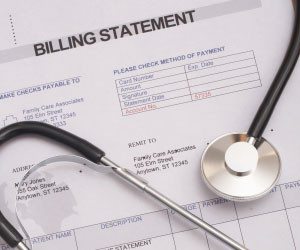
Key Takeaways:
- Medical billing professionals manage electronic patient records and ensure timely insurance and patient payments.
- Popular jobs in this field include Medical Billing Specialist, Medical Coding Specialist, and Insurance Reimbursements Specialist.
- Qualifications include a high school diploma, problem-solving skills, and an understanding of medical coding; certification can be earned in 4-6 months.
- Medical billers are in demand due to the growing complexity of healthcare systems and the need for efficient data management.
If you want to work in the healthcare industry and you would like to play an administrative role, it is time to learn about the coding jobs available in medical billing and coding. In the current digital age, everything from a patient’s contact information to their medical records are stored in a computer system.
In order to maintain these records and ensure that patient payments and insurance claims checks are received, there is a need for professionals who work directly with electronic patient accounts. These professionals who handle paperwork that relates to a patient’s records work in medical billing. Read on, and you can learn more about what you will do in the field and what types of coding jobs are available.
What Are Some of the Titles You Can Hold in Medical Billing?
If you are pursuing a career in the medical billing sector, there is more than just one title that you can attain. There is a need for medical billing professionals in doctor offices, hospitals, clinics, pharmacies, healthcare facilities, and insurance companies. The title that you hold will depend upon the setting that you work in and your level of education and experience. In smaller settings, you can take on the roles that multiple professionals would play in a larger setting. Some of the most popular jobs that are available in the sector for entry-level and experienced healthcare professionals include:
- Medical billing specialist
- Medical coding specialist
- Patient Account representative
- Insurance Reimbursements specialist
- Medical Billing Coordinator

Who is Qualified to Work in Medical Billing?
One of the great things about the industry is that you do not need to complete years of classroom and clinical training just to benefit from growth in the industry. You would need a high school diploma to start and strong career goals. There is tremendous growth projected in the field and this can be beneficial for students who are taking a medical billing program or for people who want to enjoy stability in the workforce.
You must have problem-solving skills, the ability to translate medical language to coding, and familiarity with coding systems to get your feet wet in the industry. If you would like to learn everything you need to know to be seen as a qualified candidate, you can enroll in a nationally-recognized medical billing certificate program. These programs can be completed in the classroom or online and will generally last between four and six months depending on the provider.
Be sure that you research the academy offering the training and stick with reputable options like the American Health Information Management Association or the American Academy of Professional Coders. Look into labor statistics. By doing this, you will earn an online certification that will help your resume and you will cover all of the topics you need to earn your Medical Billing certification.
As a medical billing specialist or coding specialist, your role will be to translate data from medical records while you stay in constant communication with health insurers. While you do not play a clinical role, the administrative role that you do play behind-the-scenes is very important for medical offices. If you want to begin training to enter the field, it is time to review all of the certificate programs that exist and that will learn to certification. Once you take the proper courses and get experience, you can test for certification and have no problem being offered
Are Medical Billers In Demand?
Yes, medical billers are in demand. With the increasing complexity of healthcare systems and the growing need for medical data and medical billing expertise, medical staff are highly sought after in the industry. The demand for billers is expected to grow in the coming years, as the industry continues to expand many of the jobs available in medical billing.
Medical billers typically work in medical offices, hospitals, or other healthcare facilities. They are responsible for submitting bills to insurance companies and other third-party payers, as well as processing payments and handling appeals. Medical billers also work with patients to ensure that bills are paid in a timely manner. You must have an understanding of coding, insurance policies, and healthcare regulations. They also need excellent communication and organizational skills.

List Jobs Medical Billers Do
- Reviewing Explanation of Benefits (EOB) forms for accuracy and completeness
- Verifying patient information for accuracy
- Entering patient information into a medical billing system
- Submitting claims to insurance companies and following up on unpaid claims
- Resolving issues with denied claims and medical billing
- Researching and responding to inquiries from insurance companies and patients
- Maintaining records and creating reports 8. Reconciling accounts and preparing payment summaries
- Reviewing patient accounts for accuracy and completeness
- Generating monthly financial statements in medical billing
List Skills Medical Billers Need
- having knowledge of all medical terminology for a coding career
- understanding the medical billing process
- ability to work remote medical billing jobs
- know the latest medical billing software made for a coding career
- having formal training in making medical claims
- have a coding certification in patient care
- knowing industry trends in healthcare field and medical billing
- training in a complex phone system

Is it hard to get a job as a medical biller?
It can be difficult to get a job as a medical biller because the job requires specific skills, knowledge and experience. Employers typically prefer to hire candidates who have experience in healthcare medical billing and coding. Additionally, employers will often require applicants to have a certification in medical billing and coding. Keep close eye on the job board for jobs that allow you to work remotely for a better work life balance.
Becoming a medical biller with a coding certification (from a place like colorado medicine) can be a rewarding and lucrative career choice. Billers are responsible for ensuring that insurance claims are processed accurately, which can be a challenging but important job. As long as you have the necessary skills and experience, you can make a good salary as a medical biller.
Billers are a vital part of the industry, as they are responsible for managing the medical billing process. For job hunters looking to pursue a career in medical coding and medical billing, there are several job postings available online. Job boards such as Indeed, Glassdoor, and LinkedIn are great resources for billers looking to find a new job.
Additionally, job seekers can search their local area for medical coding companies and contact them directly to inquire about available positions. Medical billers must possess strong organizational and communication skills, as they will be responsible for processing patient claims accurately and efficiently.
They must also be familiar with coding systems such as ICD-10 and CPT and must have knowledge of medical terminology, insurance policies, and HIPAA regulations. Medical billers also require certification, as employers prefer to hire workers with credentials. The American Academy of Professional Coders offers a range of certifications that are valid for two years and must be renewed every two years in order to remain valid.
The certifications can help job seekers stand out from the competition and make them more attractive to employers. Overall, medical billers are an essential part of the industry and are in high demand. With the right qualifications, job seekers can find success in the job search for medical coding and medical billing field.
What is a day like for a medical biller?
A typical day for a medical biller usually starts with logging into the system to check for any new claims that need to be processed. They then review any new claims that need to be entered into the system and make sure all patient information is accurate. Next, they would enter the services provided and any other information needed into the system. After that, they would submit the claims to insurance or government programs for reimbursement. They would then review the payment reports to make sure all payments were received and that there are no discrepancies. Finally, they would follow up with insurance or government programs on any unpaid claims and make adjustments as needed.

What Role Do Medical Billing Specialist Play in Healthcare
Medical billers play a critical role in the healthcare system, ensuring that providers are properly reimbursed for the services they provide to patients. They are responsible for submitting claims to insurance agencies, processing payments, and monitoring claims for accuracy.
Quality control is a key part of the job, as billers must make sure that claims are accurate and all necessary information is included. Additionally, they must stay up to date with changes in insurance policies and procedures. You also help to ensure that patients receive the highest quality of medical care.
They work with healthcare providers to ensure that all necessary treatments are covered and that the patient is not overcharged. They also help patients understand their medical bills, explaining any charges they may not understand. By working closely with insurance agencies, billers can help ensure that providers are paid quickly and accurately.
This helps to ensure that providers have the funds they need to provide the best possible care to their patients. Medical billers are essential to the success of healthcare providers and the well-being of patients. By ensuring accurate medical billing and a thorough understanding of insurance policies, they help to ensure that patients receive the best possible care.
Related Resource: Medical Transcriptionist
Related:
5 Great Jobs for a Respiratory Therapist
5 Important Mental Health Jobs